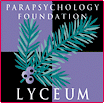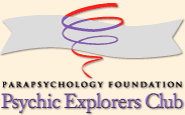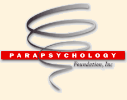 |
 |
| THE BIOGRAPHICAL DICTIONARY OF PARAPSYCHOLOGY FRANZ (or FRIEDRICH) ANTON MESMER Physician; originator of the theory of animal magnetism. B. May 23, 1733, Weil, Germany; d. March 5, 1815, Meersburh, Germany. Studied for the priesthood at Dillingen and Ingolstadt, Germany; studied medicine at the University of Vienna, receivng degree in 1766. In 1774, Mesmer began an investigation into the supposed curative powers of the magnet, and for a year or more he used magnets and materials he had magnetized for the treatment of his patients, achieving what he and many others believed were positive cures. In 1776, Mesmer visited Switzerland to study the work of Father John Joseph Gassner, a Roman Catholic priest who believed many diseases to be caused by demoniac possession, and who effected cures by what he considered were methods of exorism. Mesmer appartently concluded that Father gassner's success was due not to exorcism of demons, but to an influence which the priest was able to pass from himself to his patients, an influence which Mesmer felt permeated the universe and, through some occult power, resided in himself as well. Mesmer discarded his magnets in favor of this new method of healing, which he called "animal magnetism." By this method, he now believed, he could transmit the healing "influence," or "magnetic fluid," to his patients by touch, by look, or by "passes" of his hands above the diseased body or affected part. In 1778, Mesmer settled in Paris, where he shortly became sensationally popular, made many converts to his theory of healing, and treated hundreds for various ills and imagined ills. Memer's patients usually responded to his ministrations by falling into trance, and sometimes by becoming violently hysterical or convulsed. Mesmer looked upon convulsion as a successful "crisis" state, and there seems no doubt that cure frequently followed. French medical authorities were generally opposed to the methods of animal magnetism, however, and in 1784 the French government appointed a commission of physicians and scientist to investigate his system. The commission, although admitting that cures had been achieved, disputed the existence of animal magnetism as an agent and attributed healings to physiological causes. Mesmer retained many of his students, but his popular following largely fell away. When the French Revolution engulfed both his practice and his fortune, Mesmer left Paris for Frauenfeld, Switzerland, where he practiced medicine for nearly twenty years in near-obscurity. He returned to Germany a year or two before his death. Mesmer's theory of animal magnetism was generally discredited. But it was one of his students, Count Maxime de Puységur, who discovered that the undoubted therapeutic value of Mesmer's methods lay in the suggestibility induced by the trance state, a discovery which provided the basis for continuing experiments in Europe and in England with what the Scottish surgeon James Braid (q.v.) was later to call hypnotism. Mesmer's published works include: Mémoire sur la écouverte du magnétisme animal (1779); Histoire abrégée du magnétisme animal (1783); Mémoire de F. A. Mesmer sur les découvertes (1799). See Mental Healers by Stefan Zweig (1932). Taken from Helene Pleasants (1964) Biographical Dictionary of Parapsychology with Directory and Glossary 1946-1996 NY: Garrett Publications |
 |

|
 www. parapsychology. org |
||